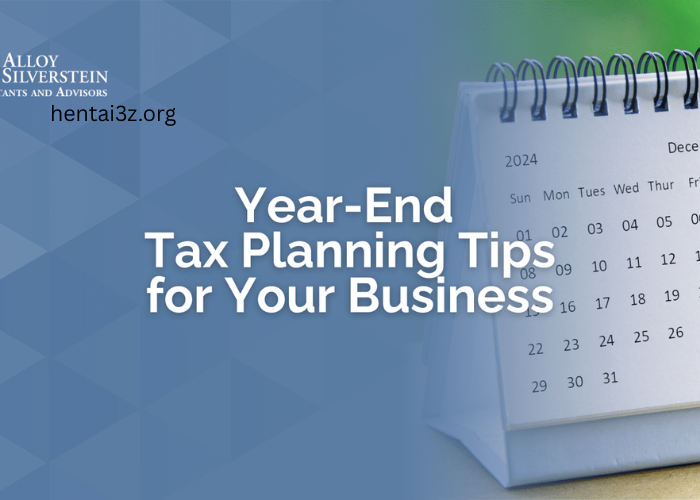As the new financial year begins, it’s the perfect time for individuals and business owners to take a fresh look at their finances and optimize their tax strategies. Effective tax planning not only helps you comply with the law but can also reduce your tax liability, improve cash flow with norraco transact, and maximize savings. Whether you’re a salaried professional, freelancer, or entrepreneur, these tax planning tips for the new financial year will help you make informed decisions and keep more money in your pocket.
Why Is Tax Planning Important?
Tax planning involves arranging your financial affairs in a way that legally minimizes your tax burden. Waiting until the end of the financial year to handle taxes can result in missed opportunities to save. Early planning helps you:
- Reduce taxable income through deductions and exemptions
- Take advantage of government incentives and reliefs
- Avoid penalties and interest by staying compliant
- Manage cash flow effectively throughout the year
Now, let’s explore some practical tax planning tips that can benefit you in the new financial year.
1. Review Your Previous Year’s Tax Returns
Start by reviewing your tax returns from the previous financial year. This helps you identify:
- Deductions or credits you might have missed
- Changes in your income or expenses
- Any outstanding tax liabilities or refunds
Understanding your past tax situation will guide your planning for the current year and highlight areas for improvement.
2. Maximize Tax-Advantaged Savings
Investing in tax-saving instruments is a popular way to reduce taxable income. Consider contributing to:
- Retirement accounts: Such as 401(k)s, IRAs, or equivalent local pension plans. Contributions often reduce taxable income and grow tax-deferred.
- Health Savings Accounts (HSAs): If eligible, HSAs provide triple tax benefits — contributions are tax-deductible, earnings grow tax-free, and withdrawals for qualified medical expenses are tax-free.
- Education savings plans: Like 529 plans, which offer tax benefits for education expenses.
Maximizing contributions to these accounts early in the financial year can enhance your tax savings and long-term financial security.
3. Keep Accurate and Organized Records
Good record-keeping makes tax filing smoother and ensures you can substantiate deductions if audited. Maintain organized files of:
- Receipts for deductible expenses (business, medical, charitable donations)
- Investment statements and dividend reports
- Income records such as payslips and invoices
- Documentation related to home office expenses if you work remotely
Consider using digital tools or apps to track your expenses and categorize them throughout the year.
4. Plan for Estimated Tax Payments
If you’re self-employed or have significant income not subject to withholding, you may need to make quarterly estimated tax payments. Failing to pay enough taxes during the year can result in penalties and interest.
Calculate your expected income and tax liability early to rare toons, and set aside funds for these payments. Using estimated tax calculators or consulting a tax professional can help you avoid surprises.
5. Utilize Tax Deductions and Credits
Take full advantage of all available deductions and credits, which directly reduce your taxable income or tax owed. Common deductions and credits include:
- Home office deduction: For remote workers meeting IRS criteria.
- Charitable contributions: Donations to qualified organizations.
- Education credits: Like the American Opportunity Credit or Lifetime Learning Credit.
- Energy-efficient home improvements: Certain upgrades qualify for tax credits.
- Medical expenses: Deductible if they exceed a percentage of your adjusted gross income.
Make sure to verify eligibility requirements for each deduction or credit.
6. Review Your Withholding and Payroll Taxes
Adjust your tax withholding with your employer to match your expected tax liability. Over-withholding means you give the government an interest-free loan, while under-withholding can lead to penalties.
Use the IRS withholding calculator or your country’s equivalent tool to find the right amount to withhold.
7. Plan for Capital Gains and Losses
If you invest in stocks, bonds, or real estate, be mindful of capital gains taxes. Strategies to minimize capital gains tax include:
- Tax-loss harvesting: Selling losing investments to offset gains.
- Holding investments longer: Long-term capital gains rates are usually lower than short-term.
- Using tax-advantaged accounts: To shelter gains from taxes.
Discuss these strategies with a financial advisor to optimize your investment portfolio.
8. Consider Retirement Plan Contributions for Business Owners
If you own a business, you have access to retirement plans like SEP IRAs, SIMPLE IRAs, or solo 401(k)s. These plans offer high contribution limits and tax advantages.
Contributing to these plans reduces taxable income and helps you save for retirement. Set up or adjust contributions early in the year to maximize benefits.
9. Monitor Tax Law Changes
Tax laws can change annually, affecting deductions, credits, and filing requirements. Stay informed about changes in tax brackets, limits on contributions, or new incentives.
Subscribe to reliable tax news sources or consult with a tax professional to ensure you’re always up to date.
10. Consult a Tax Professional
Tax planning can be complex, especially if you have multiple income streams or investments. A certified accountant or tax advisor can provide personalized advice, help you navigate regulations, and optimize your tax strategy.
Early consultation allows you to implement effective planning throughout the financial year.
Final Thoughts
The new financial year offers a fresh opportunity to organize your finances, plan ahead, and minimize your tax burden legally. By reviewing past returns, maximizing deductions, keeping good records, and staying informed, you can take control of your tax situation and keep more money where it belongs in your hands.
Start your tax planning early, stay consistent, and consider professional help when needed. With thoughtful tax planning, you can face the tax season with confidence and set yourself up for financial success.


